
Image source:https://wgcoaching.com/handcuffed-suspect/
Hello. This is the third in a series of educational posts meant to help create a more informed fan community here in allkpop. (For previous posts in the series, see 1 & 2). This article is meant to present an overview of the process of criminal investigation followed by the Korean police, prosecution and judges. As many celebrities or public figures such as Seungri, B.I.,Yang Hyun Suk, Jung Joon Young, Choi Jung Hoon, Roy Kim, Park Yoochun, Hwang Hana, PSY and others are currently embroiled in the midst of criminal investigations, this article will hopefully give you, the reader, an idea of where they are and what to expect out of the justice system and/or police investigation results. If you ever caught yourself wondering "What do all these terms - 'booking', 'arrest', mean?", or "Didn't the police already do this? Why is this investigation taking so long?", this article is for you.
The first half of this article will explain all the different stages of the investigation process, from beginning of investigation to after the court trial. The second half of the article will talk about the position of the various celebrities within the system.
(Disclaimer: I'm not a lawyer, nor trained in law enforcement. This is written from the perspective of a layman who did some research. But I'll be happy if anyone who has a background in law chimes in with corrections or additions.)
References: Most of the information here comes from the Korean Ministry of Justice's Criminal Justice portal: http://fgn.kics.go.kr/en/jsp/cjp/criminalCaseProcedures.jsp. Also, English translations of Korean laws can be found at the Korean Law Translation Center website. The two main Acts that are relevant to most of the current scandals are the Criminal Act (which covers financial crimes, sexual crimes, and corruption crimes) and the Narcotics Control Act (which covers drug crimes). The Act on Special Cases for Sexual Crimes is also relevant for the hidden camera and sex pictures chatgroup cases. Some information may be left out of this article in the interests of keeping it short enough to read, but please refer to the websites for full details.
The Criminal Investigation Procedures

Image Source: http://fgn.kics.go.kr/en/jsp/cjp/criminalCaseProcedures.jsp
Definitions:
- Criminal investigation: Criminal investigation refers to all the activities conducted by an investigative agency to determine the identity of and to secure a criminal (a person who violated a law or regulation), to gather and preserve the related evidences, to clarify the suspicion of a crime, and to determine whether to file and maintain arraignment or not to.
- Investigative agency: An investigative agency is an agency that investigates criminal cases. The investigative officers include prosecutors and judicial police officers. Judicial police officers consist of general judicial police officers and special judicial police officers, and they investigate criminal cases under the command of the prosecutor.
1. Commencement of criminal investigation:
- Clues to criminal investigation: A clue refers to the cause of an investigative agency's investigation.
- In addition to a complaint notifying an investigative agency of the commission of a crime, as in the case of accusation, delation, and reporting, there are no limitations to what can be considered a clue for investigation, such as a rumor, a media report, and the discovery of a crime while investigating a different case.
- Accusation: Accusation refers to a positive expression of intention by which a holder of accusation rights, such as the victim in a crime, reports the crime to an investigative agency to demand the punishment of the criminal. This is different from simply reporting damage incurred due to a crime.
- Delation: Delation, like accusation, refers to an expression of intention to report a crime to an investigative agency to demand the punishment of the criminal. Unlike accusation, however, any third party (a person other than the criminal and the holder of accusation rights) can delate a crime, and when a government employee discovers or witnesses a crime while performing his job, he must delate it.
- If there is an accusation or delation, or if a criminal surrenders himself/herself to an investigative agency, an investigation will be launched, and the accused, etc. will be investigated as a suspect. In the case of reporting, etc., the reported person will be investigated as a suspect if the investigative agency acknowledges a crime. The stage before the acknowledgement of a crime is the internal investigation stage.
2. Internal investigation stage: Investigative activities conducted to confirm if there is reason to suspect the defendant of having committed the crime for which he/she is charged before launching a full investigation is called internal investigation, and closing a case because such internal investigation reveals that there is no reason to suspect the defendant of having committed the crime for which he/she is charged is called closing through internal investigation.
3. Booking:
- When an investigative agency commences investigation of a case and determines such case to be the target of a criminal case investigation, it enters its case serial number and name, related personal details, etc. on the register. This procedure is referred to as booking. A person listed in the register is called a suspect under the Criminal Procedure Act.
- A crime is booked through its recognition or through the filing of an accusation or delation pertaining to it. A case that is booked and investigated shall be sent to the prosecution service, a procedure referred to as transfer. The investigation of all booked criminal cases, except those that are closed through internal investigation, can be closed only by the prosecutor.
- For instance, in a murder case, when there is reason to suspect the person charged with murder as having committed such crime but it is difficult to prove his/her commission of the crime, such person is referred to as a suspect. In the event that the investigation of the suspect yields evidences of his/her commission of the crime, the suspect will be booked and will be subjected to investigation as a suspect.
4. Arrest:
- In the event that there is every reason to suspect that the suspect indeed committed the crime with which he/she has been charged, or that the suspect has not complied with the request for him/her to appear without justifiable reason or is feared not to do so, the suspect may in principle be arrested based on the arrest warrant issued by a judge.
- To get an arrest warrant issued, a judicial police officer should request for such from the prosecutor. The prosecutor then requests the judge to issue an arrest warrant. If no clear reason for arrest is seen, the prosecutor or judge may reject the arrest warrant request.
- In the event that there is every reason to believe that the crime with which a suspect is charged is serious, and that there is no time to get an arrest warrant issued by the judge, an investigative agency may arrest a suspect without an arrest warrant by simply informing the suspect of the reason for his/her arrest. This case is referred to as arrest without warrant. If a judicial police officer has arrested a suspect without an arrest warrant, he should immediately obtain approval thereof from the prosecutor.
- To confine an arrested suspect, the investigative agency should request a warrant for confinement from the judge within 48 hours of the suspect's arrest. If a warrant for confinement is not issued within such period, the suspect should be immediately released.
4b. Examination of arrest and confinement:
- A suspect who has been arrested or confined by an investigative agency may request the court to examine the suitability of such arrest or confinement. This is called examination of arrest and confinement.
- The court should, within 48 hours of its receipt of the claim, question the arrested or confined suspect, investigate the evidences, and decide on the claim. The court, however, may decide on the claim filed by a person other than the holder of the right to the claim, or that is being sought to hamper the investigation, without questioning.
- The court dismisses the claim if it is found that there is no reason for it, or decides whether to release or uphold the arrest or confinement of the suspect if it is found that there is a reason for the claim. If release is decided, the suspect will immediately be released. Should the court decide, however, to uphold the suspect's arrest or confinement, the suspect or prosecutor cannot lodge an appeal against such decision of the court.
5. Interrogation and Detention:
- If a law enforcement agency investigates a suspect and consequently comes to believe that there is reason to suspect that he/she indeed committed the crime and may escape or destroy the evidences, it may request for the issuance of a detention warrant from the court and may detain the suspect based on such detention warrant.
- Before a decision is made regarding whether to allow detention, the suspect shall be given an opportunity to air his/her side in the process of interrogation, and another opportunity to air his/her side before the judge. This is called interrogation of a suspect before detention.
- Detention refers to a compulsory disposition by which a suspect or a defendant is confined in a confinement location for a relatively long period to limit his/her physical freedom.
- Detention of a suspect requires a judge's detention warrant issued based on the explanation of the alleged crime and the reason(s) for the detention.
- The detention warrant can be claimed either through application by a judiciary police officer or directly by the prosecutor, and if it is adjudged that there is no sufficient reason for detention, the prosecutor or judge may dismiss the request.
5b. Non-Detention: In the event that a request for a detention warrant is dismissed or a suspect is arrested and then released, the suspect shall receive a non-detention order and shall be disposed as indicted if his/her guilt is proven, or as not indicted if his/her guilt is not proven.
6. Transfer and Indictment:
- A judicial police officer should transfer the investigation records of a criminal case and the related evidences to the prosecution service, a procedure referred to as transfer.
- When transferring the investigation results to the prosecution service, the judicial police officer should express his/her opinion regarding the case based on the investigation results. The prosecutor refers to the opinion of the judicial police officer when closing the case, but such opinion is not necessarily binding on the prosecutor's final decision.
- All criminal cases, as booked and investigated by judicial police officers, should be transferred to the prosecution service, and as deemed necessary, such cases will be investigated by the prosecution service. Based on the investigation results, the prosecutor will finally decide whether to indict the defendant or not to.
- South Korea implements a criminal case state prosecution service system, by which criminal cases are filed by public prosecutors (Article 246, Criminal Procedure Act). A prosecutor's referral of a suspect to the criminal justice system is called indictment, and the indicted person is called defendant.
- Summary indictment: In addition to the regular indictment procedures, summary proceedings are prescribed under the law, which are proceedings by which, without the defendant undergoing a public trial, a summary order is issued to the effect that the defendant is sentenced to a fine or penalty, or to forfeit. It is also called summary indictment (Article 448, Criminal Procedure Act). A prosecutor files an indictment application against the related fine, penalty, or forfeit case and subsequently claims a summary order.
6b. Non-indictment:
- A prosecutor's decision to not arraign a criminal suspect is referred to as non-indictment or non-indictment disposal. This category includes suspension of indictment, non-suspicion (due to insufficient evidence), non-suspicion (crime not acknowledged), crime not established, no arraignment right, and dismissal.
- Even though the defendant's crime is acknowledged, the prosecutor may not arraign him/her in consideration of his/her age, character, behavior, level of intelligence, and/or environment; his/her relationship with the victim; his/her motivation for the crime and the means and result of the crime; and his/her situation after committing the crime (Article 247, Criminal Procedure Act). This procedure is referred to as suspended indictment disposition.
- In the event that a criminal case is found not to constitute a crime by which to arraign the case, or otherwise does not establish conditions for a suit, or if there is no sufficient reason to suspect that the defendant is guilty of the crime he/she is charged with, disabling the filing of legitimate arraignment, it will be disposed as non-suspicion, a crime not established, and as having no right of arraignment.
- If a case filed through a letter of complaint or of delation clearly possesses a reason for non-indictment, the prosecution service may dispose of it as non-indictment without investigation, a procedure referred to as disposition of dismissal.
7. Trial:
- Legal acts carried out by the court or judges are referred to as trial, and trial is categorized into judicial decision, determination, and order.
- Judicial decision: The court holds a trial to deliberate on whether a defendant, as prosecuted by the prosecutor, is guilty or not guilty. If the defendant is found guilty, the court hands down a judicial decision to impose a punishment on him/her. This is the most important type of trial.
- A trial is a procedure that is carried out to deliberate on an indictment or charge. It is openly conducted in a judicial court prepared by the court on the trial date. The defendant may state his/her opinions during the trial procedure, and may solicit an attorney's help.
- In the case of a criminal trial, according to the seriousness of the case, a single judge or a panel of three judges conducts the trial. (Note by dizzcity: South Korea does not usually use a trial by jury system.)
- Trial procedure: The trial procedure begins with an identification interrogation by the judge, in which the latter asks the defendant what his/her name, age, etc. are after the judge notifies the defendant of his/her right to refuse to issue any statement. The procedure then proceeds in the following order:
- (1) the prosecutor delivers an opening statement;
- (2) the defendant delivers an opening statement;
- (3) the judge asks questions and examines the evidences to arrange the points of the arguments;
- (4) the prosecutor interrogates the defendant;
- (5) the defense attorney questions the defendant;
- (6) the judge questions the defendant;
- (7) the prosecutor states his/her opinions regarding the case (demanding the imposition of a penalty);
- (8) the defense attorney delivers a plea; and
- (9) the defendant issues a final statement.
- (10) After this entire procedure, the judge finalizes the pleas and issues a judicial decision or sentence.
- (Note by dizzcity: These steps in the trial do not all take place in one hearing on the same date. They may be spread out over several hearings on separate dates. Different witnesses may be called and various evidence presented at each hearing as the arguments develop.)
- The presiding judge hands down a sentence or judicial decision on the day of finalization of the pleas or on a separately defined date. The types of judicial decision on criminal cases include decision of guilt, acquittal, acquittal by a public action, and dismissal of indictment. When making a decision of guilt, the judge may decide to suspend the execution of the punishment, to suspend sentencing, or to exempt the convicted person from the imposition of a punishment.
- A complaint or a final appeal should be lodged within seven (7) days of the issuance of a judicial sentence, and the applicant should submit to the court the documents specifying the reasons for such complaint or final appeal within twenty (20) days of his/her receipt of the lawsuit records from the court.
8. Sentencing:
- When the court's judicial decision is confirmed, the prosecutor, under the judge's command, executes the sentence. Penal servitude, imprisonment, or detention is executed at the prisons.
- At the order of a prosecutor, a fine, a minor fine, forfeit, additional collection, a fine for negligence, legal costs, compensation for costs, or a deposit must be executed. A person who fails to pay an imposed fine may be confined in a workhouse, and his/her property may be forcefully executed.
8b: Suspension of sentence or stay of execution:
- Suspension of sentence: A system by which, in the case of sentencing to a year or less of penal servitude or imprisonment, suspension of qualification, or amercement, the judge can suspend or defer sentencing, and by which the convicted person is exempted from being sentenced after two (2) years.
- Stay of execution: A system whereby when the judge who sentences a convicted person to penal servitude or imprisonment has reason to consider the circumstances surrounding the case, the judge can suspend the execution of the punishment for a certain period; if such suspension period passes without the convicted person recommitting the crime or violating the conditions for the suspension of his/her sentence, the sentence loses its effect, but if, during such suspension period, the convicted person recommits the crime or violates the conditions for the suspension of his/her sentence, the sentence will be executed.
- Suspension of punishment:
- If a person who was sentenced to penal servitude, imprisonment, or confinement becomes incapacitated, the execution of the punishment will be suspended until he/she recovers.
- When a sentenced person is feared to remarkably harm his/her health or be incapable of preserving his/her life due to the execution of the punishment, is only 7 years old or older, is six to nine months pregnant, gave birth to a child less than 60 days before the sentence was given, or has no relatives who can support his/her immediate family member who is 70 years old or older or who is suffering from a serious disease or disability, the execution of the punishment may be suspended upon the command of the prosecutor.
There you have it. This is the basic outline of the criminal justice system and procedures. As you may have realised, because of the many stages, it could take quite a while for a case to move through the system. Next up, I'll trace the history and current status of as many public figures as I can that have been mentioned in the news.
Current Status of Public Figures / Celebrities
This section updates you on the current status of the celebrities under investigation. There are too many celebrities to cover each of them in detail, so I'll just select a couple of individuals to illustrate the criminal justice process, and provide a brief update on the current status of the rest. Please also keep in mind that the purpose of this article isn't to establish the guilt or innocence of any particular celebrity, but rather to show you how police and prosecutors work and the procedures they are following when investigating celebrities.
The Sex Videos Investigations:
In this investigation, there are actually multiple chatrooms and 1-on-1 chats on Kakaotalk that involve different male celebrities and non-celebrities sharing camera footage of sexual acts done to female victims. Not everyone was in the same chatroom. A whistleblower originally found the video footage while repairing a phone, took it to a lawyer, who gave it to the Anti-Corruption Commission (as he suspected police corruption in covering up the evidence on Burning Sun). SBS FunE originally broke the story as a side-note to the Burning Sun investigation. MBC Newsdesk later reported 7 different chatrooms where illegal sex videos of female victims were shared, involving at least 14 celebrities (8 of them singers). On May 3rd, there were further reports of chatrooms created by press reporters covering the hidden camera controversy, involving over 200 media personnel, that was used to share the sexually-explicit videos with each other. The police cybercrimes unit has launched an internal investigation into it.
This investigation involves multiple different kinds of crimes and charges. The filming and distribution of sexually-explicit videos without consent is a crime in South Korea. A person can be charged separately for filming the sex videos, for distributing the sex videos, and for having sex with the victim in the videos without her consent (rape). (Act 15156, Articles 6, 13 & 14) However, just watching, storing or commenting on these illegal videos is not a legal crime. Only creation or distribution is a criminal offence. I just want to make a clear distinction here between morality (which can be decided by the general public's judgement), and legality (which is what the police and courts have to follow).
- Jung Joon Young: Evidence was handed to the Anti-Corruption Commission on Feb 22. The police launched an investigation on Feb 26. Jung Joon Young was booked on March 12 when arriving back in the country. He was questioned by the police on March 14. The police searched his house for evidence on March 15, and then requested an arrest warrant on March 18 after a second round of questioning. The arrest warrant was granted and he was arrested on March 21. He was transferred to the prosecutors on March 29, then formally indicted by the prosecution and held in detention on April 17, on charges of violating the Special Act on Punishment of Sexual Crimes (filming and distribution of sex videos without consent). A new allegation arose on April 18 by a woman claiming that Jung Joon Young had sexually assaulted her alongside four others while she was drunk and unconscious. The police started investigating evidence on this new allegation of sexual assault, while waiting for the victim to formally make an accusation of rape. The first hearing for his trial was on May 10, where Jung Joon Young admitted to all charges made against him. The investigation on the sexual assault case was still ongoing at the time. Finally, on June 5, the court announced that they would have a joint trial for Jung Joon Young and Choi Jong Hoon for all the combined charges of sex video distribution as well as sexual assault. The first hearing for the combined trial was on June 27, where they gave conflicting testimonies, and the trial is still ongoing. The latest trial hearing was on August 19.
- Choi Jong Hoon (former FT Island): Currently undergoing joint trial with Jung Joon Young for combined charges of sexual assault and distribution of illegal sexual videos. Latest trial hearing was on August 19.
- Roy Kim, Eddy Kim: Not detained, but transferred to prosecution on charges of sharing the sex videos. Awaiting indictment and trial.
- Seungri: Transferred to prosecution on charges of sharing the sex videos. Also on charges of instigating the members of the chatroom to commit destruction of evidence. Awaiting indictment and trial for these charges.
- Lee Jong Hyun (CNBLUE), Yoon Junhyung (former HIGHLIGHT): Both have admitted to viewing the sex videos shared by Jung Joon Young (LJH, YJH), but did not create or distribute any. (Remember, viewing is not a chargeable crime, only creation or distribution). Police called them in for questioning as witnesses, but did not book them. Closed through internal investigation.
- Kangin (Super Junior), Jung Jinwoon (2AM), Lee Chul Woo (model): Classified as witnesses rather than suspects, police did not call them in for questioning and will not be investigating them further. i.e. Closed through internal investigation.
The Drug Investigations (Philopon & LSD):
There are two separate incidences here - the investigation into Philopon usage by Park Yoochun and Hwang Hana, and the more recent investigation into LSD usage by B.I. and possible coverup by YG. Both fall into the jurisdiction covered by the Narcotics Control Act. Both Philopon (a Japanese version of meth) and LSD are classed under "psychotropic drugs". Article 3.5 of the Narcotics Act says that no person should engage in "Any act of carrying, possessing, using, managing, exporting, importing, manufacturing, trading, assisting in trade of, or giving or receiving, psychotropic drugs."
- Park Yoochun: Received sentence of 10 months in prison, sentence suspended for two years on probation, and fined 1.4 million won. (i.e. stay of execution for his sentence)
- Hwang Hana: Received sentence of one year in prison, sentence suspended for two years on probation, fined 2.2 million won, and ordered by the court to undergo supervision and treatment. However, the prosecution are appealing for a stricter sentence for her.
- B.I.: Currently under internal investigation by the police for drug use. No news about being booked as yet.
- Yang Hyun Suk: Currently under internal investigation by the police for covering up drug use by his artists. No news about being booked on these charges as yet.
The Gambling Investigations:
The core of this investigation involves the recent accusations made against Yang Hyun Suk and Seungri about gambling overseas, and possible illegal foreign exchange transactions. The Criminal Act, Article 246, states: "A person who commits the offense of gambling shall be punished by a fine not exceeding ten million won: Provided, That gambling for a mere pastime shall be exonerated from the punishment."
Article 3 of the same Act states that it applies to crimes committed by Koreans outside of Korea. Thus, gambling at casinos (other than the very special exemption at Kangwon Land) by any Korean citizen is a punishable crime, regardless of where it happens. Doing it overseas just makes it less detectable.
- Yang Hyun Suk: Police were informed about suspicious foreign exchange financial transactions overseas in April 2019, and began investigating the suspicions on August 7. They requested and received casino records from the FBI by August 9, started looking into his possible embezzlement from YG Ent as a way to acquire funds for gambling, converted the internal investigation into an official one by booking Yang Hyun Suk and Seungri on August 14, then raided YG Entertainment's office in search of evidence on August 17. The latest update on August 19 has the police still analyzing the data and evidence gathered from the raid as well as overseas, but no longer looking at suspicions of embezzlement of funds from YG Ent. The police expect to call Yang Hyun Suk and Seungri in for questioning once the analysis is sufficiently complete.
- Seungri: Same as above.
- Sidenote: Cha Tae Hyun and Kim Joon Ho underwent an police investigation on gambling as well, due to the friendly bets they made over golf. However, the clause about gambling for a mere pastime is probably the reason the police let them off, as they had returned the money to each other after the golf games (thus making it a pastime, rather than an actual attempt to gain wealth).
The Prostitution Mediation Investigations:
This investigation revolves around whether certain celebrities engaged prostitutes to cater to wealthy clients/investors in order to facilitate business transactions. The Criminal Act, Article 242 (Arranging for Prostitution) states: "A person who induces, entices, or procures a person to engage in sexual intercourse for gain shall be punished by imprisonment for not more than three years or by a fine not exceeding 15 million won."
- Seungri was booked and forwarded to prosecution on charges of several incidences of prostitution mediation throughout Dec 2015 - Jan 2016. Suspicions about a later incident on his birthday in 2017 was forwarded to prosecution, but recommended for non-indictment.
- Yang Hyun Suk was booked by police for prostitution mediation for an event in Sept 2014. Investigation is ongoing into possible other instances, and the latest update by police says that they will continue to question him about this alongside the gambling investigation.
- PSY was alleged to have been at the Sept 2014 meeting where prostitution mediation occurred, as a high-ranking member of YG Entertainment at the time. The police called him in for questioning, but there has been no news of him being booked so far. It is unclear whether he was directly involved in arranging for the prostitution (which would be a crime), or merely in attendance at the meeting.
The Tax Evasion Investigation:
This investigation revolves around the practice by club owners registering their businesses as "general restaurants" rather than as "entertainment bar businesses" (which the category that clubs and bars fall into, as defined by the Enforcement Decree of the Food Sanitation Act, Article 21). The difference is that owners of regular restaurants pay 10% value-added taxes (VAT), while owners of entertainment bar establishments have to pay 10% VAT + 10% special consumption taxes + 3% education taxes (i.e. a total of 23% in taxes). Thus, several club owners illegally register themselves under the wrong business license in order to pay lower taxes.
- Seungri was booked and forwarded to prosecution for violating the Enforcement Decree of the Food Sanitation Act for his club, Monkey Museum. Awaiting indictment and trial.
- Yang Hyun Suk and his brother Yang Min Suk were alleged by Kukinews to be owners of a holding company that in turn owns Love Signal, a club in Mapo District. However, the policy surrounding the registration of this club is unclear, as the district government has been bending the rules for all clubs in the district in order to encourage business growth. There has been no reports about the police following-up on this.
The Embezzlement Investigation:
- Seungri has been transferred to prosecution on charges of occupational embezzlement from both Monkey Museum and Burning Sun. He is awaiting indictment and trial.

 SHARE
SHARE






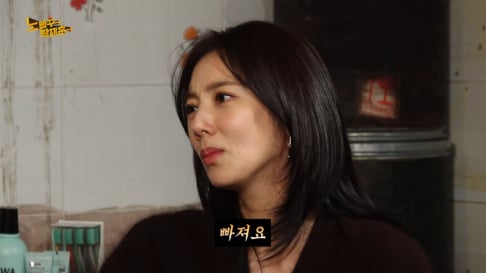
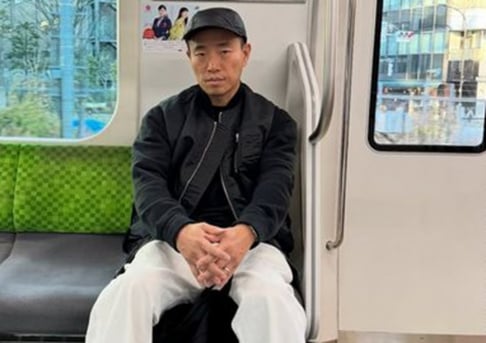
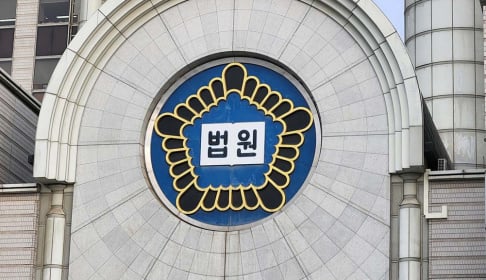

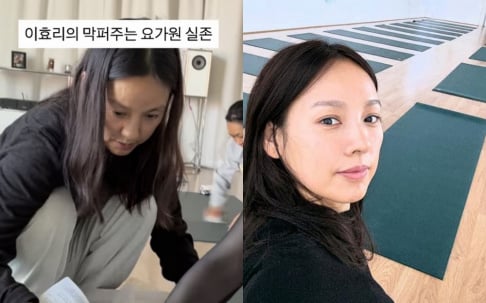
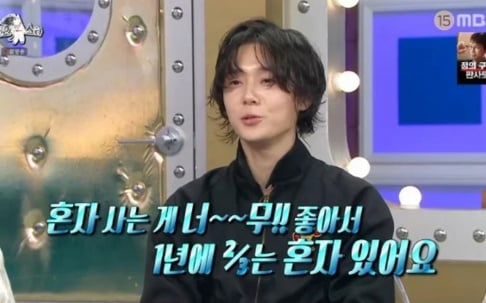
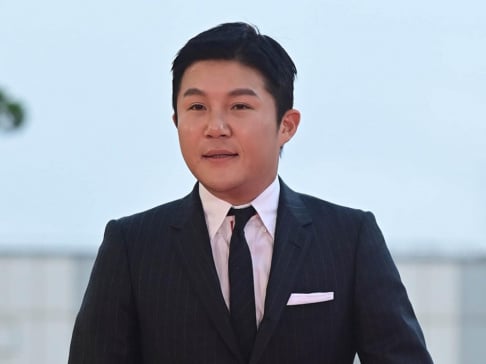




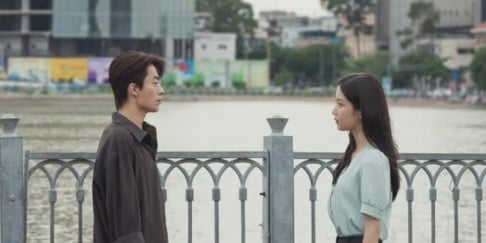
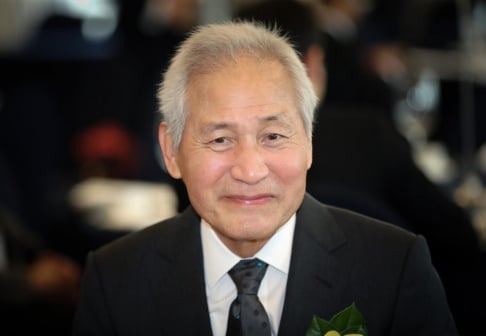
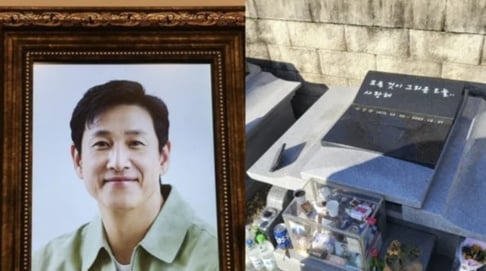
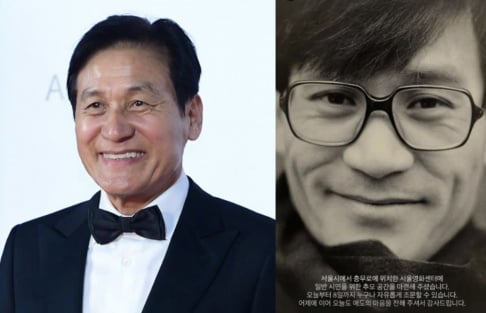


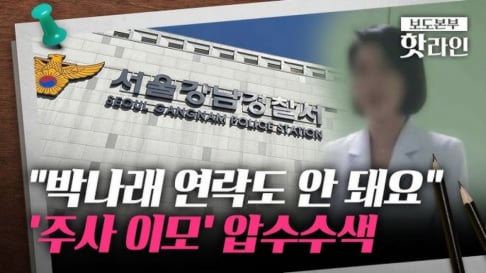





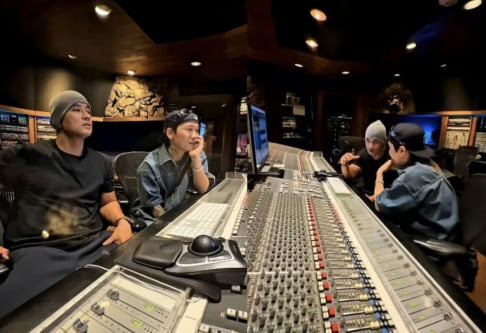














Nicely written, but I guess those who are not familiar with those things can find your explanation hard as some cases have tiny differences but different outcome. And I applaud you for the nice and full summary of BS case.
I must agree with your explanation and some of the comments here. I too hope that AKP writers take notes and learn how to correctly translate articles. I find it really tiresome explain how things really are and be accused of being hater/overly defending fan. Although AKP in not really credible source, there are many people who believe in everything just because it was posted here. Whatever it's rumour, truth, or disinformation.